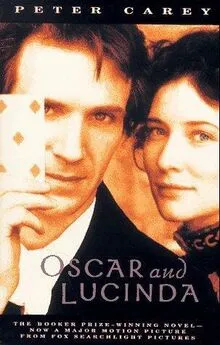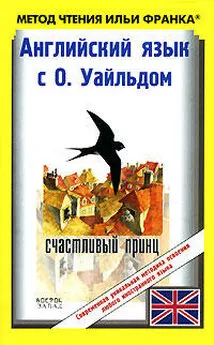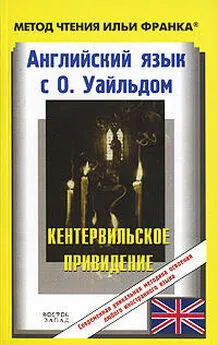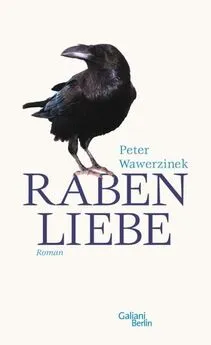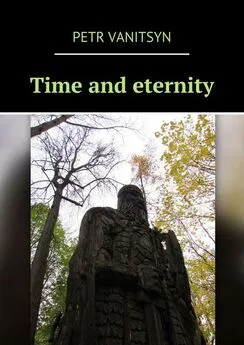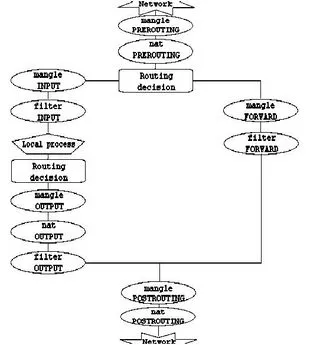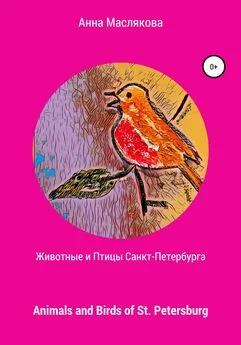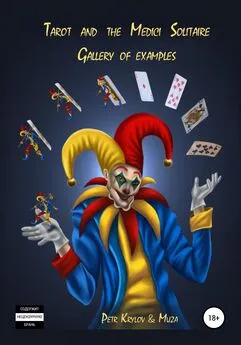Peter Carey - Oscar and Lucinda
- Название:Oscar and Lucinda
- Автор:
- Жанр:
- Издательство:Vintage Books
- Год:1988
- Город:New York
- ISBN:0-679-77750-4
- Рейтинг:
- Избранное:Добавить в избранное
-
Отзывы:
-
Ваша оценка:
Peter Carey - Oscar and Lucinda краткое содержание
The Booker Prize-winning novel-now a major motion picture from Fox Searchlight Pictures.
This sweeping, irrepressibly inventive novel, is a romance, but a romance of the sort that could only take place in nineteenth-century Australia. For only on that sprawling continent-a haven for misfits of both the animal and human kingdoms-could a nervous Anglican minister who gambles on the instructions of the Divine become allied with a teenaged heiress who buys a glassworks to help liberate her sex. And only the prodigious imagination of Peter Carey could implicate Oscar and Lucinda in a narrative of love and commerce, religion and colonialism, that culminates in a half-mad expedition to transport a glass church across the Outback.
Oscar and Lucinda - читать онлайн бесплатно полную версию (весь текст целиком)
Интервал:
Закладка:
Oscar still held one corner of the plan between thumb and forefinger. He was now crouching awkwardly with his backside hovering above Miss Shaddock's low-slung sewing chair. He looked at Lucinda, expecting to see a sympathetic softening of the face, but saw, if anything, the opposite.
"Mr d'Abbs," she said, relinquishing the plans to Oscar. "You have been complacent about the most serious matter imaginable. Good taste aside, this church cannot be made. You ignored the information I provided you with. The sheets must be three feet long and eighteen inches wide. Did it ever occur to you," she cried, her voice shaking, "you who call yourself my friend, did you ever think what might depend on this?"
Mr d'Abbs was so loaded with his own emotions that he had no space to take on Lucinda's anguish or wonder what might cause it. He looked like an actor stabbed on stage. He opened his mouth and then shut it. He caught a book as it slipped from his grasp.
"There is a wager dependent on this, Mr d'Abbs. I stand to lose my fortune." In her heart Lucinda expected this revelation to have some effect on Mr d'Abbs. It was an expectation carried from the time when she had placed a cauliflower on the front desk at Petty's Hotel.
But she was not a little girl and Mr d'Abbs was not her protector. "What do you know about stakes?" he hissed.
Lucinda thought: So! He hates me. So be it. Why shouldn't he?
"You little brat. You are playing with money as if it were windfalls in an orchard. What do you know about business?"
This insult had a most salutary effect on Lucinda. It dismissed her panic. It unlocked all those not inconsiderable opinions which told her that she was a better person that Mr d'Abbs. She drew herself up to
1
Gratitude
her full height, unclenched her hands and rubbed their palms together.
"Do not patronize me, Mr d'Abbs," she said. "You are a dabbler. You are all dabblers." She felt herself at one with Oscar Hopkins. They stood together, outside the pale, united. "You are children."
"We are children?"
"Oh, yes, indeed," Lucinda said, imagining that the day would come when she would regret this outburst. "Indeed you are."
"We?"
"All of you," said Lucinda, indicating with a sweep all the empty chairs, thus summoning and dismissing the images of Miss Malcolm, Mr Calvitto, Mr Fig, Mr Borrodaile, and even-there-Mr Henry Parkes. Thus, with a disdain worthy of Elizabeth Leplastrier, she burned the last of her social bridges in Sydney.
Mr d'Abbs affected spluttering. "And you, I suppose, are adults?"
"We are wagering everything. We place ourselves at risk."
"Oh, how noble you are," cried Mr d'Abbs, his face quite twisted with passion, "how elevated."
"We are alive," said Lucinda and at that moment she felt herself to be what she said. "We are alive on the very brink of eternity."
Lucinda took the plans from Oscar and placed them gently on the low walnut table beside her chair.
"You get out of my house," said Mr d'Abbs, snatching up the plans. He looked as if he might cry if not obeyed. "You, sir, Mr Smudge,
go now."
"Do not call him Mr Smudge, if you please."
"This is my house and I will call him what I like."
For a moment Oscar thought Lucinda intended to strike Mr d'Abbs with her hand. Mr d'Abbs anticipated the same. He screwed up his face and this gave his hatred a slightly pathetic cast. Luanda's cheeks were flushed and her lips, hitherto so rightly rucked away, were now released and slightly parted. She gazed at Mr d'Abbs with an expression related to, but slightly kinder than, contempt. Her passions rushed through her veins declaring their intensity (but not their tangled nature) in lips, nostrils, in those extraordinary large green eyes. Oscar thought: How beautiful she is.
"You have no head for business," said Mr d'Abbs.
Oscar held out his arm. Lucinda took it. Oscar thought: I love her.
"She takes his arm," hissed Mr d'Abbs. "Not that door, unless you wish the sleeping quarters. You have no head for business and no eye either."
They found their way into the hallway. Oscar saw a woman (it was
355
Oscar and Lucinda
Mrs d'Abbs) holding the front door open for them. She was applecheeked with golden curls and she looked at them both with her eyes bright, her mouth open. As they passed through the door she pressed an orange into Oscar's free hand.
"Thieves walking out the door," announced Mr d'Abbs, running into the passage. "An idea stolen and no thanks given."
He stood beside his pretty wife watching Oscar and Lucinda walk arm in arm up the garden steps to their sulky.
"You are not the maid, Henny," he said. "It is hardly seemly that you open and close our door for riff-raff." But his tone was not as harsh as his words suggest and all the time he spoke, his eyes quizzed hers on quite a different subject which related to how much she had heard and what she thought of him as a result.
And all the while Henny d'Abbs was picturing her orange. She saw it peeled and broken into segments and thought how all that was good in it would soon be incorporated in a completely different world.
A Lecture Based upprj a Parable
That Mr Ahearn chose to walk four miles from his hotel in Pitt Street all the way to Whitfield's Farm, was partly the result of his habit of early rising, a good habit at home when one could light the stove, feed the hens, study the newspaper, and still be at one's office half an hour before one's clerks, but there was also, in this long slow walk, a kind of conceit. For to soak one's shoes in dew-wet grass, to pick one's way along a foot-wide path of the meandering type more often made by cattle than by humans was, to Mr Ahearn's mind, evidence of a kind of honesty, and this differentiated his advice (the advice he was about to deliver, the advice he carried with him) from that of people who travelled in hansoms at speed, cut a dash in traps, sulkies, broughams, phaetons. He could see himself in his mind's eye, a view from up and T;A
A Lecture Based upon a Parable
looking down-a man with a staff on a road, a traveller in a parable. Mr Ahearn was aware of how he looked to such a degree that, were he at all good-looking, it would be obvious that he was vain. But he was not good-looking, knew himself not good-looking, and yet he had a knowledge of his appearance so exact that it could only have been obtained by examining himself not with one mirror, but with two, and sometimes-there was a silver-backed one of his wife's he sometimes
used-three.
Mr Ahearn's face had become, in the five years since he saw Lucinda on Sol Myer's boat on the Parramatta wharf, more so. It had become more blotched and leathery. The cheeks seemed to have sunken, the Adam's apple to have risen, the long strands of hair across his bald pate to have reduced themselves in number while they increased their thin black definition. The nose craned forward while the belly had swollen, and underneath his cardigan he had permitted himself to leave a button undone. His shoulders were narrow, but his arms were long and powerful and his hips wide. And he did not need you to tell him it was so-he saw it all. He thought himself the tortoise, and from this, unlikely as it may seem, he drew great strength, and he saw, with all this peering at himself with two and three mirrors, not merely imitating the behaviour of a vain manhe was a vain man, although he knew perfectly well that most of the world would class him as downright
ugly.
Mr Ahearn believed his adult form was one for which he was personally responsible, that he had made his own face and manner through the habits of his life. He had cultivated goodness and propriety. He had begun as a poor clerk and thought himself lucky to have got that far. His mother was a rag and bone merchant and his father the same, but mostly drunk or absent. When he was twelve years old he had copied down the parable of the talents. He had written it on a small piece of white paper. He had a good hand, mercifully free of fashionable flourishes, and he was able to ht Matthew 25:14–30 on a piece of paper the size of a postcard. He folded it in four and kept it in his wallet, and he had the parable in his wallet now, fifty years later, as he walked across the rickety wooden plank bridge at the entry of Balmain, where Mullens Street is these days. It was a single plank, and often stolen, and in that respect Balmain has not changed very much, but it was not Balmain which was the subject, but this piece of paper, measuring six inches by four which was not the same piece of paper, of course not, as the original, for it was a piece of paper that received much wear, was taken out, folded, shown, to a child, to a 357
Oscar and Lucinda
grandchild, to a stranger in a coffee palace, and even the best paper will not withstand this, and so Mr Ahearn had, over the years, got himself into the habit of transcribing the parable on to a new piece of paper on every New Year's Day. He would begin: "For the kingdom of heaven is a man travelling into a far country…" and work slowly and painstakingly until, just as his wife was laying the roast potatoes out on a bed of brown paper and popping them back into the kookaburra oven, he would, with much satisfaction, transcribe: "And cast ye the unprofitable servant into outer darkness: there shall be weeping and gnashing of teeth." And thus, as Chas Ahearn folded the piece of paper into four between the thick pincers of his nails, a new year would begin. What talents he had been given, he had used. He was a man of property but a careful man, a Christian man, and if the Lord had seen fit to bestow on Lucinda Leplastrier an amount of capital equal to the sum of all his lifetime's labour, he had not been resentful of this. But he had watched her. He had watched her carefully, sometimes from close by, but more normally from a distance, via rumour and hearsay. He watched her as he might have watched a stranger's child playing with a crystal glass. In other words, it was not his right to say anything but he sat, on edge, waiting for the crash, hoping perhaps to catch the glass between the child's hand and the floor, unable to rest or read a newspaper for fear of what might happen. He had not approved of the purchase of the glassworks. He had thought it impulsive, illconsidered. But when he heard about the glass church, he was beside himself. He was angry. He could not help this anger, but he was now making this journey, not to chide her or vent his spleen, but to avert the crash. It was his Christian duty.
He came, at last, along the rocky ridge past Birchgrove House, a solid enough property which she would have been wise to purchase herself. He had told her so, four years ago. He had directions from a farmhand knee-deep in pig mire. The man pointed down through the orchard to a small half-painted cottage above the western side of the peninsula. He had burrs caught in his socks and in his trousers. There were burrs caught even in his shoelaces. The pasture was in poor condition, and Chas Ahearn, observing the burrs, the state of the sheds, fences, the piebald cottage, could not help himself valuing the property. If it had been his he would have had surveyor's pegs dotted like cribbage pegs throughout the orchard. The gate all but fell off the cottage fence. What this gate was meant 358
Читать дальшеИнтервал:
Закладка:
